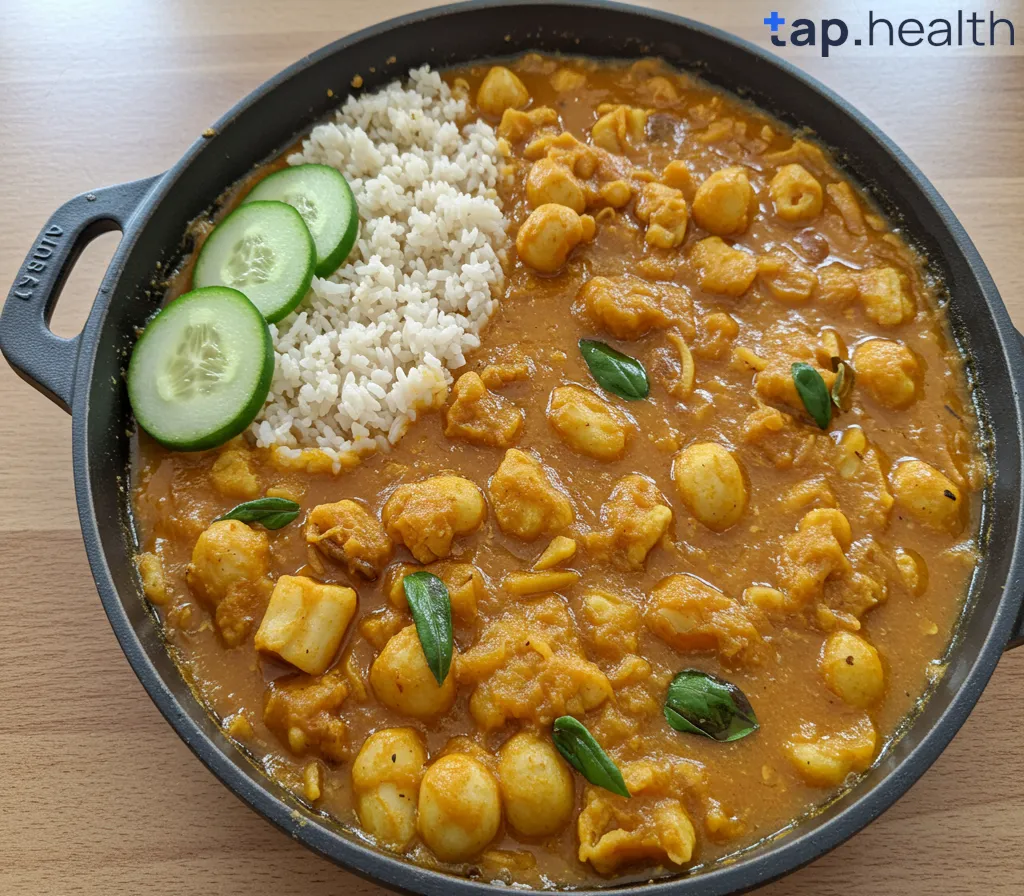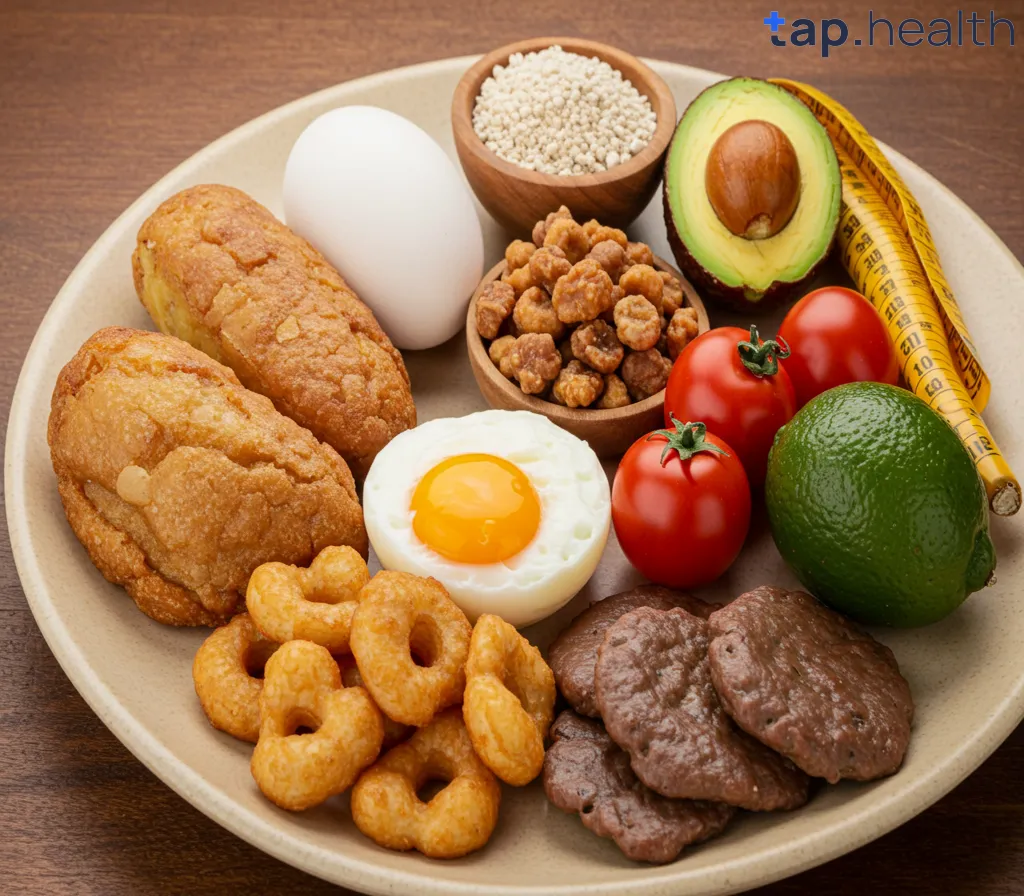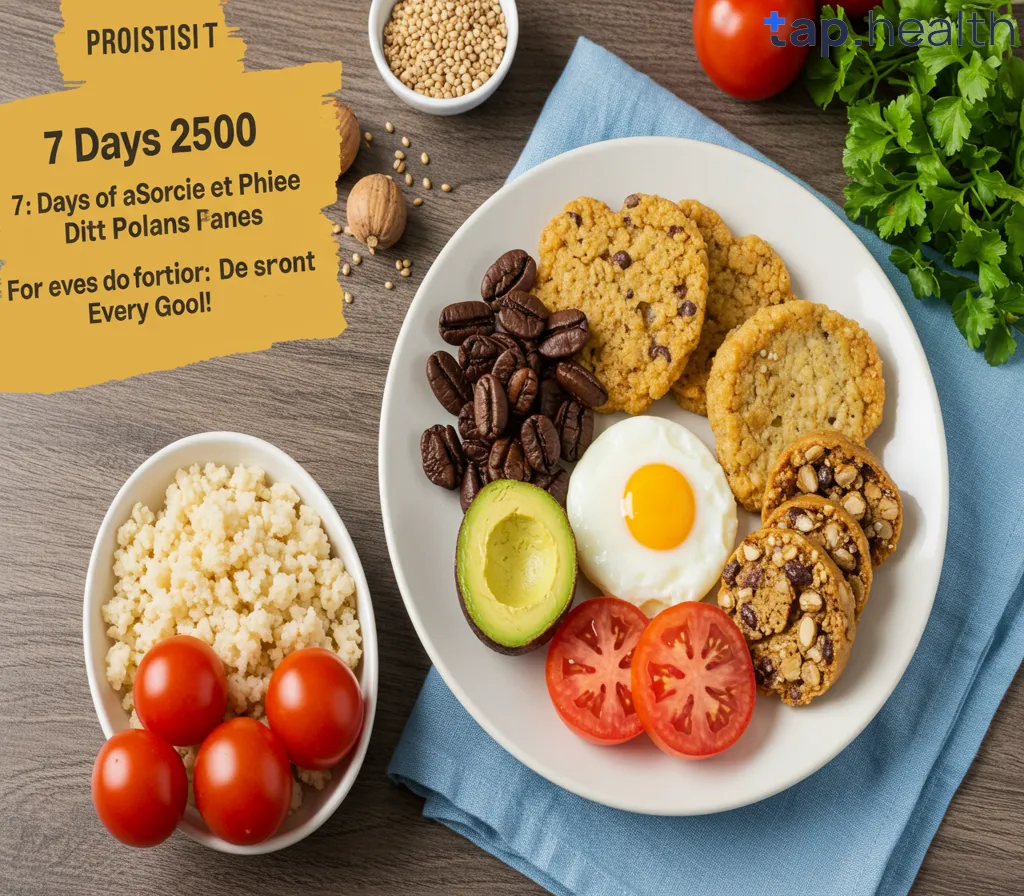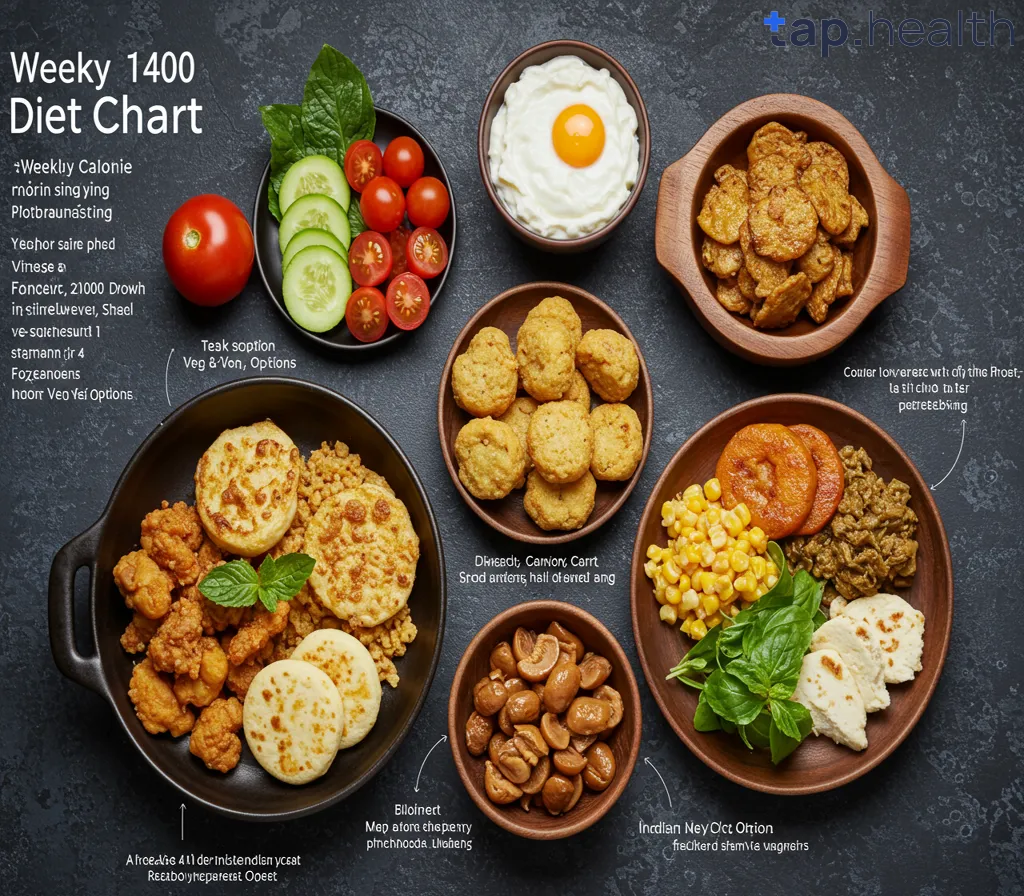Gaining muscle mass, also known as bulking up, requires a well-balanced diet combined with an effective workout routine. For men looking to bulk up, consuming more calories than you burn is essential for muscle growth. A 2000-calorie Indian meal plan is a great starting point for those aiming to increase their calorie intake without compromising on health. This plan is designed to help you gain lean muscle mass while maintaining a healthy balance of macronutrients—protein, carbs, and healthy fats.
In this article, we will break down a 2000-calorie Indian meal plan that focuses on providing the right foods to support muscle growth, energy for workouts, and recovery. We’ll also cover all the frequently asked questions that men often have when trying to bulk up and give you tips on how to implement this meal plan for best results.
Why a 2000-Calorie Meal Plan?
If you’re looking to bulk up, your body needs extra calories. Calories are the energy your body uses for exercise, metabolism, and daily activities. For men who want to gain muscle mass, a 2000-calorie meal plan is often a good place to start. It ensures that you are consuming enough calories to create a caloric surplus, which means you’re eating more than you burn.
However, the goal is not just to eat more, but to eat the right macronutrients to support muscle growth. It’s important to combine the right balance of protein to build muscle, carbohydrates to fuel workouts, and fats for energy and hormone production.
Key Nutrients for Bulking Up
Before diving into the meal plan, it’s important to understand the role of key macronutrients in helping you bulk up:
1. Protein
Protein is essential for muscle repair and growth. After a workout, your muscles are broken down and need protein to rebuild. Without enough protein, your body won’t be able to repair and grow muscle effectively.
Sources:
- Lentils (dal)
- Tofu
- Paneer
- Chicken (for non-vegetarians)
- Eggs
- Greek yogurt
- Fish
Goal: Aim for 1.2 to 2 grams of protein per kilogram of body weight. So, for a 70 kg man, that would be 84 to 140 grams of protein daily.
2. Carbohydrates
Carbs are your body’s main source of energy, especially for intense workouts. You need enough carbs to fuel your workouts, replenish glycogen stores, and support muscle growth. Complex carbohydrates provide sustained energy over a longer period, making them ideal for bulking.
Sources:
- Brown rice
- Sweet potatoes
- Whole wheat roti
- Oats
- Quinoa
- Bananas and other fruits
Goal: Aim to get around 45-55% of your total daily calories from carbs.
3. Healthy Fats
Fats help with energy and the production of hormones like testosterone, which is crucial for muscle growth. Healthy fats also help your body absorb vitamins like A, D, E, and K.
Sources:
- Olive oil
- Avocados
- Almonds
- Peanut butter
- Flaxseeds
- Chia seeds
Goal: Fat should make up about 25-35% of your total daily calories.
2000 Calorie Indian Meal Plan for Bulking
Here’s a 7-day meal plan designed to give you a 2000-calorie Indian diet that is rich in protein, healthy fats, and complex carbs to help you bulk up and build muscle.
Day 1 – 2000 Calorie Indian Meal Plan
Breakfast (400 Calories)
- 1 boiled egg (70 calories)
- 1 small bowl of oats with milk (120 calories)
- 1 tablespoon peanut butter (90 calories)
- 1 small banana (90 calories)
- 1 cup green tea (5 calories)
Lunch (500 Calories)
- 1 small bowl of chicken curry (for non-vegetarians) or tofu curry (150 calories)
- 1 small whole wheat roti (80 calories)
- 1 small bowl of brown rice (120 calories)
- 1 small serving of vegetable salad (50 calories)
- 1 teaspoon olive oil for dressing (50 calories)
Dinner (600 Calories)
- 1 small serving of paneer tikka (150 calories)
- 1 small serving of quinoa (100 calories)
- 1 small serving of vegetable curry (broccoli, carrots, peas) (150 calories)
- 1 small whole wheat roti (80 calories)
- 1 small cup of Greek yogurt (75 calories)
Snack (500 Calories)
- 1 handful of almonds (100 calories)
- 1 small apple (80 calories)
- 1 small boiled egg (70 calories)
- 1 scoop of whey protein with water or milk (250 calories)
Day 2 – 2000 Calorie Indian Meal Plan
Breakfast (400 Calories)
- 1 small bowl of poha (with peas and carrots) (120 calories)
- 1 tablespoon almond butter (90 calories)
- 1 small banana (90 calories)
- 1 boiled egg (70 calories)
- 1 cup herbal tea (5 calories)
Lunch (500 Calories)
- 1 small bowl of chickpea curry (150 calories)
- 1 small whole wheat roti (80 calories)
- 1 small serving of brown rice (100 calories)
- 1 small side of mixed vegetables (50 calories)
- 1 teaspoon olive oil for cooking (50 calories)
Dinner (600 Calories)
- 1 small serving of grilled chicken breast (150 calories)
- 1 small serving of quinoa (100 calories)
- 1 small serving of vegetable stir-fry (bell peppers, spinach, zucchini) (150 calories)
- 1 small whole wheat roti (80 calories)
- 1 small cup of Greek yogurt (75 calories)
Snack (500 Calories)
- 1 small handful of walnuts (100 calories)
- 1 small apple (80 calories)
- 1 small boiled egg (70 calories)
- 1 scoop of whey protein shake (250 calories)
Day 3 – 2000 Calorie Indian Meal Plan
Breakfast (400 Calories)
- 1 small bowl of masala scrambled eggs (150 calories)
- 1 small whole wheat toast (80 calories)
- 1 tablespoon peanut butter (90 calories)
- 1 cup green tea (5 calories)
Lunch (500 Calories)
- 1 small bowl of dal (lentils) (150 calories)
- 1 small whole wheat roti (80 calories)
- 1 small serving of mixed vegetable curry (100 calories)
- 1 small serving of brown rice (120 calories)
Dinner (600 Calories)
- 1 small serving of grilled paneer (150 calories)
- 1 small serving of quinoa (100 calories)
- 1 small serving of vegetable curry (broccoli, carrots, peas) (150 calories)
- 1 small whole wheat roti (80 calories)
- 1 small cup of Greek yogurt (75 calories)
Snack (500 Calories)
- 1 handful of almonds (100 calories)
- 1 small banana (90 calories)
- 1 boiled egg (70 calories)
- 1 scoop of whey protein with water (250 calories)
Day 4 to Day 7
For the remaining days, follow the same structure, swapping in tofu for protein, switching up vegetable curries, and using different grains like quinoa, brown rice, and millets. You can also include snacks like Greek yogurt, almonds, boiled eggs, and protein shakes.
FAQs: Common Questions about the 2000-Calorie Indian Meal Plan for Bulking
1. How much protein should I be consuming for muscle growth?
For muscle growth, aim to consume 1.2 to 2 grams of protein per kilogram of body weight. For example, if you weigh 75 kg, you should aim for 90 to 150 grams of protein per day. Focus on high-quality protein sources like paneer, chicken, dal, and Greek yogurt.
2. Can I use this meal plan for fat loss?
While this meal plan is designed for bulking, you can still use it for fat loss by creating a caloric deficit. If you want to lose fat, you might need to reduce your calorie intake slightly (e.g., to 1800 calories or 1700 calories).
3. How can I ensure I’m eating enough calories for bulking?
If you’re not feeling full or gaining muscle, try adding more healthy fats (such as olive oil, avocados, or nuts) to your meals. These calorie-dense foods will help you meet your calorie goals without increasing portion sizes too much.
4. Can I substitute the protein sources in the meal plan?
Yes, you can substitute chicken with tofu or paneer for a vegetarian option. You can also replace whey protein with plant-based protein powders or opt for eggs, Greek yogurt, or legumes.
5. Should I take supplements while bulking?
While supplements like whey protein can help you meet your protein requirements, it’s best to get most of your nutrients from whole foods. However, a multivitamin and creatine can also be beneficial, depending on your individual needs and workout intensity.
Conclusion
An 1800-calorie Indian meal plan for bulking is an excellent way to help you gain muscle mass without gaining excess fat. By focusing on protein, complex carbohydrates, and healthy fats, this diet plan ensures that you fuel your workouts, recover effectively, and maintain muscle growth. Combine this meal plan with a consistent workout routine, including strength training and cardio, for the best results.
By following this simple yet effective diet, you’ll be well on your way to achieving your muscle-building goals while staying healthy and energized.




